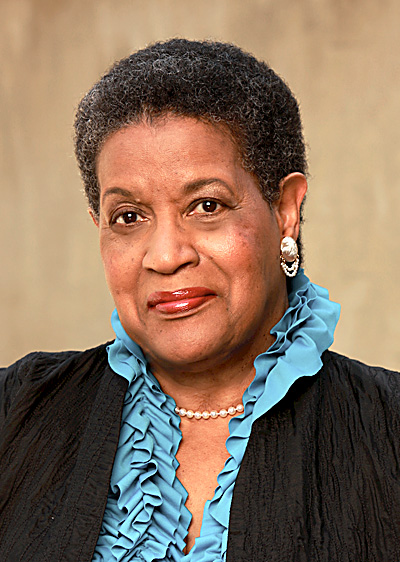 “Any serious discussion of the civil rights movement’s future must deal with at least four moral and organizational imperatives: stewardship, inclusiveness, concern for the disadvantaged and rededication to nonviolence as both ethical and effective tools for struggle.” – Myrlie Evers-Williams
“Any serious discussion of the civil rights movement’s future must deal with at least four moral and organizational imperatives: stewardship, inclusiveness, concern for the disadvantaged and rededication to nonviolence as both ethical and effective tools for struggle.” – Myrlie Evers-Williams
It was February1995. With these words, Myrlie Evers-Williams began her legendary tenure as chairman of the NAACP after defeating the incumbent by one vote.
The NAACP was in disrepair and plagued with financial difficulties, scandal and controversy. Evers-Williams’ positive reputation among civil rights activists made her election a cause for renewed optimism among NAACP supporters. Through her unwavering vision as a leader and with determined spirit, she is credited with spearheading the operations that restored the association to its status as the premier civil rights organization in America.
She became the first chairman-emeritus of that organization in 1998 when she retired to establish the Medgar Evers Institute, linking business, government and communities to further human rights and equality.
Evers-Williams is perhaps best remembered as the widow of Medgar Evers, the Mississippi state field secretary for the NAACP who in 1963 was gunned down in the driveway of his Jackson home. She waged a painstaking battle to keep her husband’s memory and dreams alive and valiantly lobbied to bring his killer to justice. Her diligence eventually paid off when the assassin was brought to trial for a third time and finally, in 1994, was found guilty of the murder, more than 30 years after the crime.
Always a voter-registration activist, Evers-Williams became a candidate to represent the 24th Congressional District of California in 1970. She went on to become the first black woman to head the Southern California Democratic Women’s Division and was convener of the National Women’s Political Caucus.
Her corporate career began in 1973 with a two-year term with the New York firm Selligman and Latz Inc., where she held the position of vice president for advertising and publicity. For 10 years, Evers-Williams worked for Atlantic Richfield Co., serving first as the national director for community affairs and later as director of consumer affairs. During her ARCO tenure, she developed the concept for the first corporate booklet on women in nontraditional jobs, “Women at ARCO.” In 1988, Mayor Tom Bradley appointed her as the first black woman on the five-member Los Angeles Board of Public Works, where she helped oversee a budget of nearly $1 billion.
As an author, Evers-Williams has captured the work and historical significance of the civil rights movement through several publications chronicling the life of Medgar Evers. In 1967, she co-wrote “For Us, the Living,” with William Peters; and in 2006, with co-author Manning Marable, she penned “The Autobiography of Medgar Evers: A Hero’s Life and Legacy Revealed Through His Writings, Letters and Speeches.”
In 1999, she published her personal memoirs, “Watch Me Fly: What I Learned on the Way to Becoming the Woman I Was Meant to Be,” which charts her journey from being the wife of an activist to becoming a community leader in her own right.
In addition to holding 16 honorary degrees from leading colleges and universities, Evers-Williams is a recipient of numerous civil rights, human rights and community awards. Her governance expertise has been recognized by national and international organizations. In 2007, as NAACP chairman-emeritus, she led a delegation to Paris to present the Conseil Representatifs des Associations Noires with a recognition award in support of its efforts to achieve racial equality and social justice for black Frenchmen and women. She has been the featured keynote speaker for renowned organizations such as the Milken Institute and TEDx. Augmenting her social justice advocacy work, she remains a sought-after lecturer at colleges and universities.
In January 2012, she was invited to return as distinguished scholar-in-residence at Alcorn University in Lorman.
Balancing her passion for justice and equality with her love and training for music, her diverse talent was highlighted in a special invitational concert series at Carnegie Hall in December 2012.
Evers-Williams continues the course of the Medgar Evers Institute and will spearhead the 50th commemoration of her late husband’s assassination later this year.